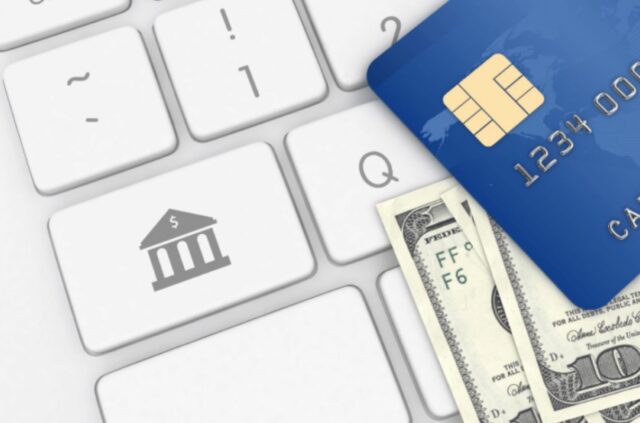
Offshore bank accounts are extremely popular with businessmen, well-to-do people, investors, or just travelers as they really offer a lot of benefits. For instance, you can use different currencies at once and benefit from a favorable exchange rate and impressive geography of the partner and client network. Asset protection and confidentiality are the pillars of present-day life that clients want to rely on, and foreign and offshore banks are ready to help you.
A foreign account can be opened relatively easily, especially if you can count on an expert’s assistance. However, you need to know how to withdraw the money once you put it there, otherwise, your account turns into a locked treasure box without a key. In this post, we are going to have a quick look at the schemes available, but we have a really detailed article on how to get money from your offshore account on our portal, and you can read it to find out multiple ways to withdraw your money and cash it, and discover illegal ways of withdrawal that no longer work in 2025 (never to use them, of course).
“Oh, dear. The money on my foreign account is blocked!”
We hope you will never experience this. The range of emotions may differ from mild frustration to despair, and all because you failed to comply with the rules… Don’t do that.
We have prepared a list of six absolutely legal schemes that can be used in 2025 to guarantee hassle-free withdrawal and cashing. However, don’t panic even if your account is blocked – follow the link above and contact an expert to see what can be done to secure your funds.
And, ta-da, here are the schemes:
1. Pay dividends!

This is one of the most widespread methods: you distribute profits among company members in the form of dividends. Follow this algorithm:
• Make sure that the company’s capital exceeds the limit set
• Make an official decision to distribute the dividends to shareholders or founders according to your Articles of Association.
• If necessary, subtract the personal income from the dividends and then transfer them to respective accounts.
2. Pay salary!
This is a completely legal and transparent way to get your money: just make yourself a company executive and pay an official salary. However, the scheme has its drawbacks: the company and the individual will have to pay taxes on that amount. Therefore, do a simple calculation to decide whether this scheme is profitable for you or if you need to think of some other way.
3. Take an interest-free loan!

You sign an agreement with a law firm that grants an interest-free loan to the company founder with any repayment period specified. There is an important nuance, however: funds should be withdrawn and repaid! If you only withdraw certain amounts, it may attract the attention of regulating authorities that will invalidate the transaction at once and impose heavy fines.
4. The company takes a loan from the founder
This time, it is the founder that provides funds to the company (contrary to what was happening in the previous scheme). This is quite a legal way of money withdrawal, though it may seem more complex than the previous one. Still, some people find it convenient.
And here is what you have to do:
• The founder grants a loan to an offshore entity at some interest rate
• If the company is audited, you’d better have confirmation of the target spending of the borrowed funds to be on the safe side
• The lender gets interest for the use of borrowed funds on a monthly basis
5. Withdraw funds from the corporate account as business expenses

Practice shows that business expenses account for a considerable part of company spending. The legal entity acquires valuables, such as a service car, furniture for the office, or real estate. However, you will need to explain in documents why the company needs this or that asset. What is the role of a Maldives property in your company’s operations, for instance? And you’d better have a good reason for that.
Keep in mind that the assets are officially owned by the company and not by the founder personally, and they may be seized to pay the company’s debts in case of bankruptcy or any other problems.
6. Provision of paid services
A second company (that you own) or a private entrepreneur will provide paid services to you (according to the documents). These can include a promotion, keeping accounting records, transfer of intellectual property rights, and so on.
In reality, the money will be returned to the founder.
Beware of inadequately high remunerations, though, as these may attract the attention of regulators. Specify an average market fee.
We advise our clients to combine several of these options to make their reporting look realistic. It can be the provision of services, an interest-free loan, and a salary, for example.
Finally, let’s look at the list of don’ts.
Entrepreneurs used to resort to certain schemes in the 1990s and 2000s, but they no longer work in 2025. In fact, they are illegal and will inevitably bring problems, and you’d better keep away from them.
Here is what you mustn’t do under any circumstances:
• Start a shell company in the offshore jurisdiction in an attempt to remain completely anonymous
• Make fictitious operations where you just get your money without providing anything in return (you may get entangled in a risky and costly scheme, so you’d better try one of the six legal ones above)
• Open a few one-day companies with nominee beneficial owners that make a chain. In current business realities, you cannot open a corporate bank account without providing information about the real company owner.
If you need information on cashing the amount you’ve successfully withdrawn using one of the six legal options above, please follow the above link to read a longer article.
At our portal, you can order free consultations on choosing the right jurisdiction and bank to start your company or open a bank account. If you are new to the world of banking and business, we will provide a hassle-free experience for you. And if you are an experienced player, you will appreciate our speed and professionalism.
We wish you good luck with your business and financial matters!









